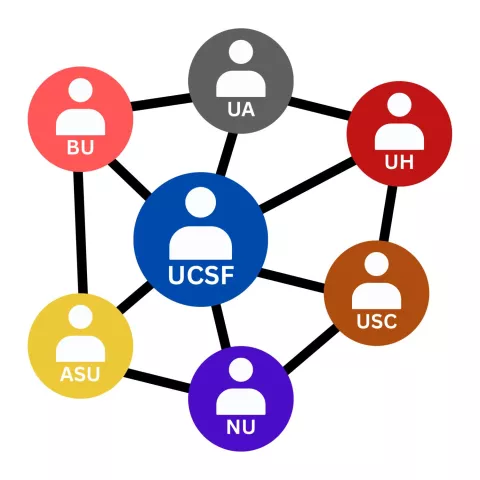

Dr. Assal Habibi

Dr. Sarah Hennessy
Pilot Study Title: Neural Mechanisms Supporting Music-Evoked Nostalgia in Mild Cognitive Impairment
Position: Postdoctoral Scientist at the University of Arizona
Research goal: This project aims at understanding the neural mechanisms underlying the impact of personalized nostalgic music on autobiographical memory recall in individuals with Mild Cognitive Impairment.
Background: PhD in Brain and Cognitive Sciences completed at the University of Southern California, focusing on neural correlates of music-evoked emotion and memory.
Why this study: Listening to nostalgic music may temporarily improve autobiographical memory and sense of self in individuals with cognitive decline, yet the neural mechanisms of this improvement remain elusive. This project seeks to identify brain networks responsible for nostalgic music's beneficial effects. By understanding these neural mechanisms, we aim to develop more targeted and effective music-based interventions for individuals with Alzheimer's disease and provide a scientific framework for implementing these treatments.

Dr. Borna Bonakdarpour
Pilot Study Title: Central Auditory Processing Modulation Underlying Anxiety Reduction Using Clinically Designed Improvisatory Music
Position: Associate Professor of Neurology; Director, Northwestern Music and Medicine Program

Dr. Lou Awad
Pilot Study Title: Use of Mobile Brain-Body Imaging to Evaluate the Effects of Rhythmic Auditory Stimulation on Gait and Brain Function in Alzheimer's Disease
Position: Associate Professor of Physical Therapy and Rehabilitation Sciences; Director Neuromotor Recovery Laboratory, Boston University.
Research goal: Research integrates clinical biomechanics, neuromotor control, and rehabilitation to develop and evaluate technologies that diagnose, assist, and treat movement impairments following neurological injury or disease
Background: Joint DPT/PhD at University of Delaware. PhD in Biomechanics and Movement Sciences. Postdoctoral Fellow at Wyss Institute at Harvard University and Harvard School of Engineering and Applied Sciences.
Why this study: Individuals with Alzheimer’s disease (AD) experience a nearly threefold higher rate of falls than neurotypical older adults due to impairments in both gait and cognition. There is an urgent need for fall-prevention interventions tailored to the unique deficits of individuals with AD. Music-based interventions are emerging as highly promising non-pharmacological treatments for individuals with AD. The goal of this study is to examine the neural correlates of AD-related gait dysfunction and the mechanisms underlying RAS-induced improvements in walking ability.
